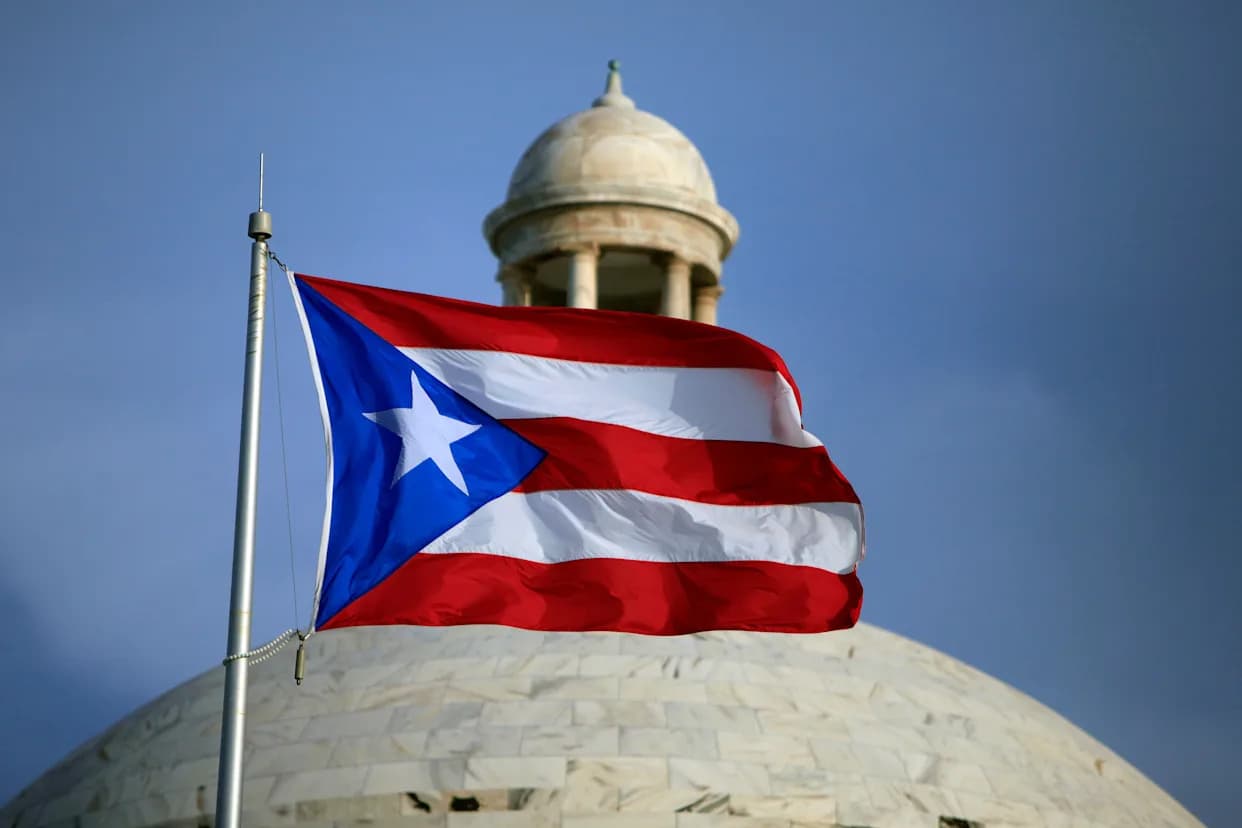The U.S. has reopened Naval Station Roosevelt Roads in Ceiba, Puerto Rico, which had been closed since 2004, as part of a broader military buildup in the Caribbean amid tensions with Venezuela. Ten F-35 jets were deployed to Puerto Rico and Pentagon imagery showed a B-52 flying over the USS Gerald R. Ford. U.S. officials report at least 20 strikes on suspected drug-trafficking boats since early September, with about 80 reported deaths. Senior White House and military officials have briefed President Trump and held multiple days of discussions on potential operations related to Venezuela.
U.S. Reactivates Roosevelt Roads Naval Base in Puerto Rico Amid Caribbean Military Buildup
Ceiba, Puerto Rico — U.S. reopens Roosevelt Roads as regional tensions rise
A U.S. naval installation that was closed more than two decades ago has been returned to service as Washington expands its military presence in the Caribbean amid mounting tensions with Venezuela.
Naval Station Roosevelt Roads, which first opened in 1943 and was shuttered in 2004, has been reopened and is now one of five locations on Puerto Rico where U.S. forces are operating. Puerto Rico occupies a strategic position north of Venezuela, and officials say the increased posture is intended to address regional security concerns, including drug trafficking and threats related to Venezuela.
In early September, a source told CBS News that the Pentagon deployed 10 F-35 fighter jets to Puerto Rico for operations aimed at disrupting drug-trafficking networks. Pentagon imagery released recently also shows a B-52 long-range bomber flying over the aircraft carrier USS Gerald R. Ford as the carrier steamed toward the Caribbean — an image U.S. officials describe as a show of force.
Samuel Rivera Báez, mayor of Ceiba, told CBS News that the overhead F-35s wake him in the morning: "Right now, the United States is the most powerful in the world. Having them here taking care of us, we feel more than safe."
Local reaction is mixed. Some residents express relief at the heightened protection, while others report anxiety. "I feel tense, kind of anxious, not knowing what is going to happen, maybe an attack nearby," local resident Damien Leon told CBS News.
According to a Navy official, as of Friday morning the U.S. had four warships operating in the western Atlantic, including the USS Gerald R. Ford and three guided-missile destroyers. Another seven vessels were reported in the Caribbean, including two guided-missile destroyers, two guided-missile cruisers, an amphibious assault ship and two amphibious transport dock ships.
U.S. forces have also conducted live-fire exercises in the region. The White House says U.S. forces have struck suspected drug-trafficking boats since early September; officials report at least 20 strikes that they say have killed approximately 80 people.
Venezuelan President Nicolás Maduro has denounced the U.S. military activity and warned of possible invasion threats. Addressing supporters, he asked rhetorically:
"Raise your hand if you want Venezuela to become a Yankee colony."
Inside the White House, multiple sources familiar with the matter told CBS News that senior military officials briefed President Trump with updated operational options for Venezuela, including potential strikes on land. Additional discussions continued the following day; people described as present for the talks included Vice President J.D. Vance, Defense Secretary Pete Hegseth, Secretary of State Marco Rubio and the chairman of the Joint Chiefs of Staff, Dan Caine. Sources said these sessions represented at least three consecutive days of high-level review of Venezuela-related options.
This redeployment and buildup in the Caribbean underscores growing U.S. focus on regional security challenges — balancing counter-narcotics operations with heightened tensions over Venezuela — and has elicited varied responses from local communities in Puerto Rico who live closest to the reopened base.
Help us improve.

























